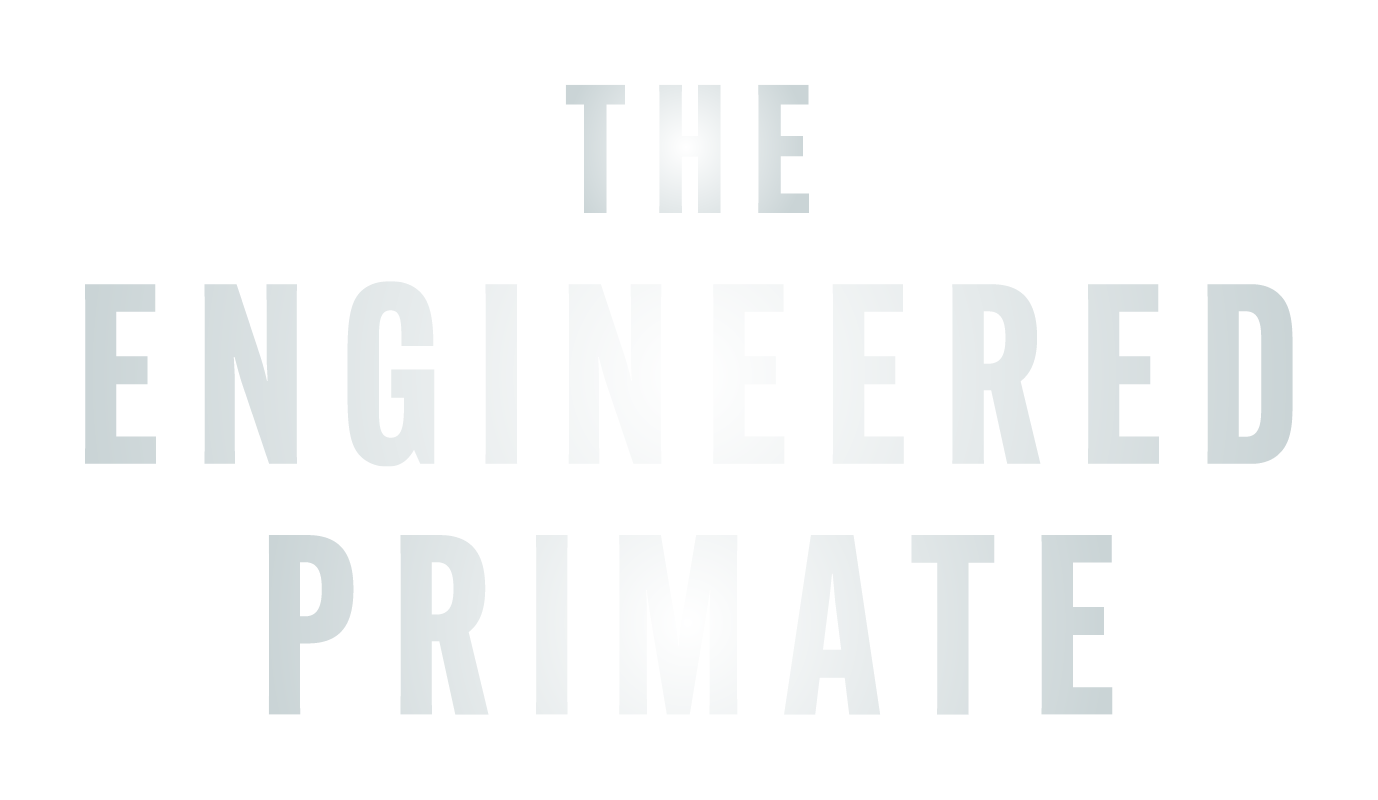Bone Broth and Collagen: An Unnatural and Unnecessary Narrative
The rise of bone broth and collagen supplements reflects a modern misunderstanding of human nutrition and physiology—one that bypasses the body’s natural systems and the evolutionary foods it evolved to thrive on. These products are marketed as essential for gut health, joint function, and skin elasticity, but they fail to align with the body’s true needs, ignoring the central role of fibre, co-factors, and natural processes. When viewed through the lens of Evolutionary Engineering (EE) and Evolutionary Intelligence (EI), bone broth and collagen are not only sub-optimal and unnecessary but also raise serious ethical concerns.
Bone Broth and Collagen: What Are They?
Bone Broth
Bone broth is made by simmering animal bones, connective tissue, and marrow in water for extended periods. The process extracts collagen, gelatin, and small amounts of minerals like calcium and magnesium. It is promoted as a nutrient-rich elixir, offering benefits for the gut, joints, and skin.
Collagen Supplements
Collagen supplements are derived from animal products, including bovine (cow), porcine (pig), or marine (fish) collagen.
The Body’s Collagen System: Demand-Driven and Gradual
Collagen is the most abundant protein in the human body, forming the structure of skin, connective tissue, and bones. It is synthesised naturally by the body from amino acids and co-factors obtained through a balanced diet.
How Collagen Synthesis Works
A Long-Term Process:
Collagen production is demand-driven, regulated by the body’s needs over long periods of time—not in high-dose moments of nutrient overload like when introduced with supplements.
The amino acids used in collagen synthesis—such as glycine, proline, and hydroxyproline—are drawn from a nutrient pool that the body replenishes gradually, aligning with its physiological rhythms.
Dependent on Co-Factors, Not Direct Inputs:
Collagen synthesis requires specific nutrients and co-factors which neither collagen supplements nor bone broth provide, including:
Vitamin C: Essential for stabilising and cross-linking collagen fibres.
Zinc: A co-factor in collagen production and tissue repair.
Antioxidants: Protect collagen from oxidative stress and degradation.
Plants Provide Everything Needed:
Fruits, vegetables, nuts, seeds, and legumes provide all the amino acids, co-factors, and antioxidants required for collagen synthesis.
Hydration from water-rich fruits and vegetables further supports skin health, a benefit bone broth and collagen supplements cannot replicate.
The Flawed Logic of Bone Broth and Collagen
Rapid Absorption vs. Gradual Integration
Bone broth and collagen supplements are introduced into the body without the fibre necessary for modulated absorption, transport, and signalling. This creates a rapid influx of amino acids, which:
Flood the System:
Nutrients enter the bloodstream in a chaotic surge, bypassing the feedback loops and gradual nutrient release that fibre provides.
Bypass Demand-Driven Regulation:
The body absorbs amino acids indiscriminately, not because it needs more collagen but because the input has overwhelmed the system’s natural checks and balances.
Represent the Body’s Resourcefulness, Not Necessity:
The body metabolises these inputs as best it can, but this reflects its ability to adapt to sub-optimal conditions, not an inherent requirement for collagen or bone broth.
Unnecessary and Artificial
Bone broth and collagen supplements are artificial solutions to a problem that does not exist in fibre-aligned systems:
Collagen cannot be replenished directly by consuming collagen supplements—it must be synthesised by the body from amino acids and co-factors, regardless of where they come from.
Fibre-rich plant foods naturally align with the body’s nutrient requirements, supporting not only collagen synthesis but also gut health, microbiota diversity, and systemic inflammation regulation.
The Ethical Implications
Killing and Simmering Animals
Bone broth and collagen supplements represent an industrial byproduct of animal agriculture—a system that causes significant environmental harm. When plants provide not only everything required but also everything optimal, the killing and simmering of animals should not be condoned.
The Ethical Incompatibility
Plants Offer the Whole Package:
Plant-based foods provide:
– Prebiotic Fibre: Essential for microbiota health and gut integrity.
– Co-Factors: Like vitamin C and zinc, which are critical for collagen synthesis.
– Antioxidants: To protect collagen from oxidative damage.
– Hydration: Supporting skin elasticity and overall health.
These nutrients are delivered gradually, aligned with the body’s demand-driven processes.
Bone Broth and Collagen as Leftovers:
– Bone broth and collagen are byproducts of a system that overproduces animals and must find uses for their remains.
– Simmering animal bones and extracting proteins is a practice that reflects excess, not necessity—a repurposing of industrial waste rather than a biologically aligned input.
Resourcefulness vs. Ethics:
While the body can adapt to sub-optimal inputs like collagen or bone broth, this reflects its resourcefulness, not a requirement. The ethical cost of killing animals for what plants already provide in abundance is unjustifiable.
Fibre and the Natural Way
Fibre-Centric Alignment
Fibre is the evolutionary cornerstone of digestion and nutrient absorption:
– It modulates digestion, ensuring nutrients are released gradually and transported efficiently.
– It supports gut-brain signalling, enabling feedback loops that align nutrient use with systemic needs.
– It nourishes gut bacteria, producing short-chain fatty acids (SCFAs) that reduce inflammation and promote systemic health.
Bone Broth and Collagen Lack Fibre
Without fibre:
– Nutrients enter the system chaotically, overwhelming digestive and metabolic pathways.
– Gut bacteria remain undernourished, failing to produce SCFAs or maintain microbial diversity.
A Misaligned Trend
Bone broth and collagen supplements are modern solutions to a problem created by modern diets. Fibre-deficient, processed food-heavy diets disrupt the body’s natural systems, creating the illusion that animal-derived supplements are necessary. This narrative ignores that the human body thrives on plant-based, fibre-rich diets, which align with the natural rhythms of digestion and nutrient use.
Conclusion: A Return to Alignment
Bone broth and collagen are artificial constructs, misaligned with the body’s evolutionary systems and unnecessary in the presence of fibre-rich, plant-based foods. The body’s demand-driven processes, supported by natural inputs, highlight the sufficiency and superiority of plant-based nutrition for collagen synthesis, gut health, and systemic well-being.
When plants already provide everything optimal, the killing and simmering of animals for bone broth and collagen is not just unnecessary—it is unethical. By embracing the fibre-fuelled harmony of plant-based nutrition, we honour the systems that evolved to sustain us, rejecting the artificial and wasteful in favour of the natural and aligned.

